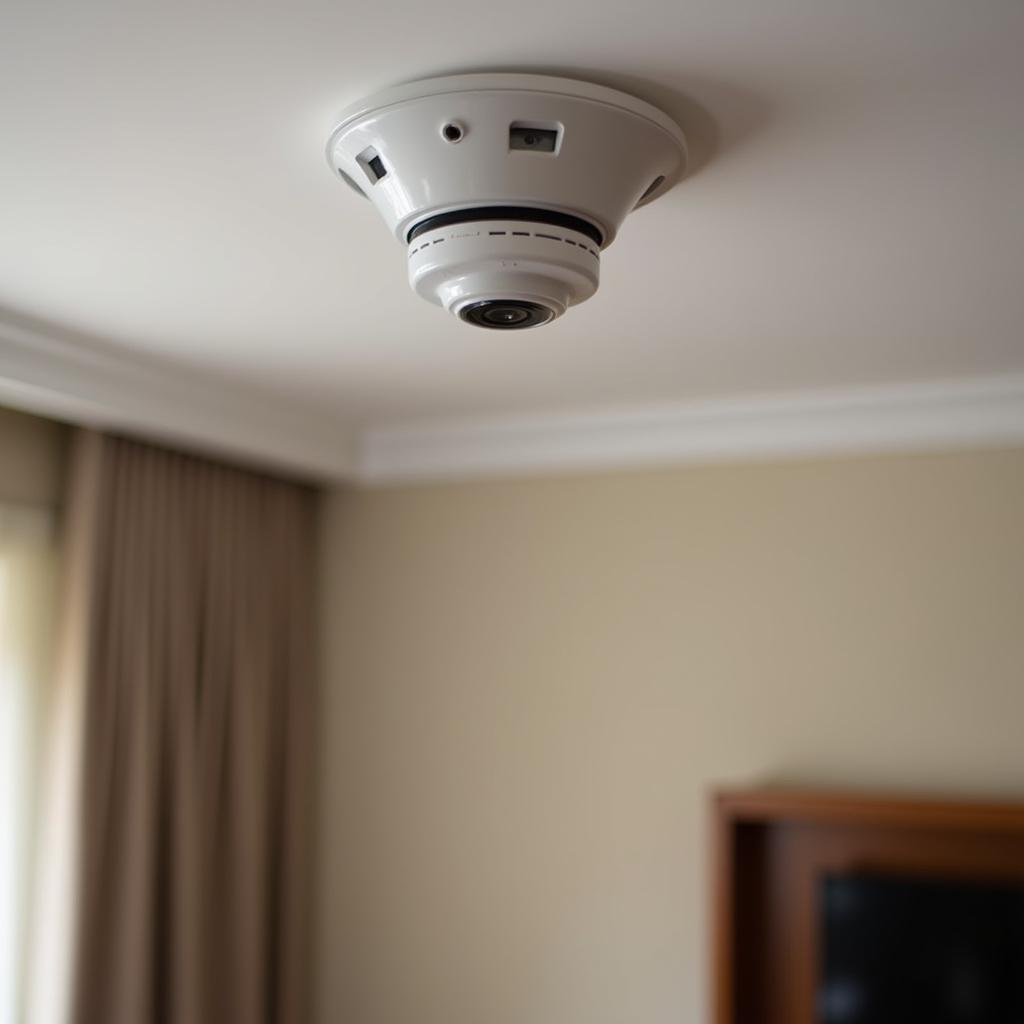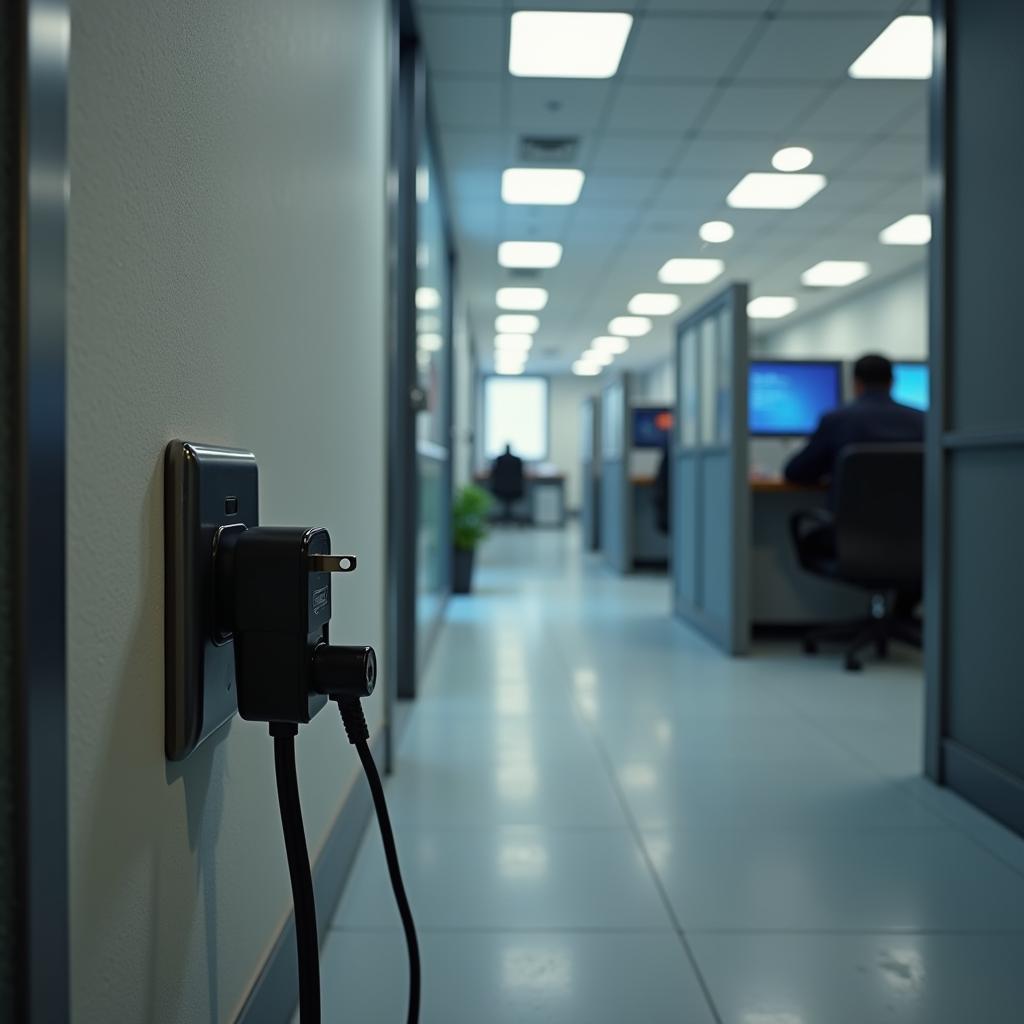The use of hidden cameras, often referred to as “spy cams” or “nanny cams,” has become increasingly common in Pakistan, raising concerns about privacy and potential misuse. While these devices can be employed for legitimate security purposes, the lack of clear regulations and potential for abuse has ignited a debate about their ethical implications.
The Rise of Hidden Cams in Pakistani Society
The proliferation of affordable and readily available hidden cameras has contributed to their widespread adoption across various sectors in Pakistan. From safeguarding homes and businesses to monitoring employees and caretakers, these devices offer a sense of security and accountability. However, this technological advancement also presents new challenges in a society grappling with privacy norms in the digital age.
One primary reason for the increased use of hidden cameras is the rising crime rate in certain parts of Pakistan. Individuals and businesses alike are turning to these devices as a means of deterring theft, vandalism, and other criminal activities. The footage captured by hidden cameras can serve as valuable evidence in investigations, aiding law enforcement agencies in identifying and apprehending perpetrators.
 Hidden Camera for Home Security
Hidden Camera for Home Security
Furthermore, hidden cameras have become increasingly popular among parents seeking to ensure the well-being of their children. Nanny cams, disguised as everyday objects like teddy bears or clocks, are used to monitor the activities of caregivers and ensure children are treated appropriately. This trend reflects a growing concern among parents about potential abuse or neglect by domestic help.
Legal and Ethical Considerations
Despite their growing popularity, the use of hidden cameras in Pakistan exists in a legal gray area. The country currently lacks comprehensive legislation specifically addressing the deployment and usage of such devices. This ambiguity raises concerns about potential misuse and infringement upon individuals’ right to privacy.
While recording someone without their consent is generally considered illegal in Pakistan, exceptions exist when it comes to security purposes. However, the lack of clear guidelines leaves room for interpretation and potential abuse. For example, employers using hidden cameras to monitor employees’ every move raise concerns about employee rights and potential exploitation.
 Workplace Monitoring with Hidden Cameras
Workplace Monitoring with Hidden Cameras
“The absence of specific laws governing hidden camera usage creates a situation where these devices can be easily misused,” says Fatima Ali, a lawyer specializing in cybercrime and privacy law in Islamabad. “It’s crucial to establish clear guidelines that balance security concerns with individuals’ right to privacy.”
Protecting Your Privacy in the Age of Hidden Cameras
Navigating a world where hidden cameras are becoming increasingly prevalent requires individuals to be vigilant about their privacy. Here are some steps you can take to protect yourself:
- Be aware of your surroundings: When in public or private spaces, be mindful of objects that seem out of place or could potentially conceal a camera.
- Be cautious of unusual behavior: If you notice someone seemingly trying to record you without your consent, politely confront them or alert the authorities if necessary.
- Educate yourself about your rights: Familiarize yourself with Pakistan’s existing laws regarding privacy and surveillance to understand your rights and how to protect them.
Conclusion
The use of hidden cameras in Pakistan presents a complex dilemma, balancing legitimate security concerns with the fundamental right to privacy. As technology continues to advance, it becomes imperative for policymakers, legal experts, and citizens to engage in a constructive dialogue to establish clear guidelines that govern the ethical and responsible use of these devices. Striking a balance between security and privacy will be crucial in ensuring that the benefits of technology are harnessed without compromising the fundamental rights of individuals in Pakistan.
Frequently Asked Questions (FAQ)
1. Is it legal to use hidden cameras in Pakistan?
The legality of using hidden cameras in Pakistan is currently ambiguous due to the lack of specific legislation. While recording someone without consent is generally illegal, exceptions exist for security purposes. However, clear guidelines are needed to define the boundaries of acceptable use.
2. Can I use a hidden camera in my home?
While using hidden cameras within your home for security purposes might be generally acceptable, it’s essential to consider the privacy of family members and domestic help. It’s advisable to inform them about the presence of cameras and obtain their consent, if possible.
3. What should I do if I find a hidden camera without my consent?
If you discover a hidden camera placed without your knowledge or consent, document the evidence and report it to the local authorities. You can also seek legal advice to explore your options for legal recourse.
4. Are there any regulations on selling hidden cameras in Pakistan?
Currently, there are no specific regulations governing the sale of hidden cameras in Pakistan. However, sellers are expected to operate within the bounds of existing laws related to privacy and surveillance.
5. What are the potential implications of misusing hidden cameras?
Misusing hidden cameras can lead to legal consequences, including fines, imprisonment, or civil lawsuits. It’s crucial to use these devices responsibly and within the confines of the law to avoid any legal ramifications.
Need more information about technology and its impact in Pakistan? Explore our articles on big data analytics pakistan and the growing demand for galaxy s4 second hand price in pakistan.
For assistance or legal advice on matters related to privacy and technology, contact us at +923337849799, email us at [email protected], or visit our office located at Dera Ghazi Khan Rd, Rakhni, Barkhan, Balochistan, Pakistan. Our dedicated customer support team is available 24/7 to address your concerns.